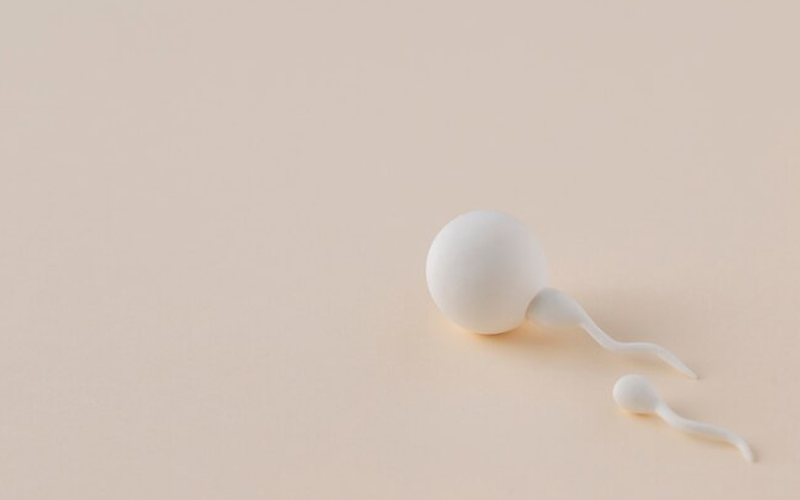Embarking on a journey towards enhanced fertility often involves exploring the multifaceted world of supplements, among which CoQ10 has emerged as a front-runner. Unraveling the mysteries of CoQ10, we delve into the pivotal questions surrounding its optimal consumption timing, particularly for fertility enhancement. In this comprehensive guide, we explore the nuances of CoQ10, its role in fertility, and how to integrate it effectively into your daily routine. Whether you're just beginning to explore fertility options or have been on this path for a while, understanding the role of CoQ10 and its optimal usage is crucial.
Best time to take coq10 for fertility

The best time to take CoQ10 for fertility is typically in the morning with a meal that contains fat, as CoQ10 is fat-soluble and is better absorbed with dietary fat. This timing can help maximize its bioavailability and effectiveness. However, it's important to consult with a healthcare provider for personalized advice, especially when taking supplements for fertility.
When to Incorporate CoQ10 in Your Daily Routine

It's a dance of timing and biology when it comes to supplements. The question isn't just about what to take, but also about when to take it for maximum efficacy. For CoQ10, this is particularly true. Coenzyme Q10, or CoQ10, is a naturally occurring antioxidant in the body, playing a critical role in energy production and protecting cells from oxidative damage. Its significance in fertility lies in its ability to improve egg and sperm quality by enhancing mitochondrial function. The timing of CoQ10 intake can influence its effectiveness, as our bodies absorb and utilize nutrients differently throughout the day. Here, we will explore the best times to incorporate CoQ10 into your daily routine to optimize its fertility-enhancing properties.
Morning or Night: Setting the Stage for CoQ10
Is there a best time to take CoQ10 morning or night? The answer lies in understanding your body's rhythm. CoQ10, a crucial cog in the fertility wheel, works in harmony with your natural cycles. The body's metabolic processes fluctuate throughout the day, influenced by circadian rhythms. These rhythms impact how supplements are absorbed and utilized. Some studies suggest that taking CoQ10 in the morning can synergize with the body's natural peak in metabolic activity, potentially enhancing its absorption and effectiveness. However, others find that taking it at night aligns better with the body's restorative processes, which could be beneficial for reproductive health. We'll dissect the research and anecdotal evidence to help you make an informed decision about the best time to take CoQ10 for your fertility needs.
Unraveling the Dosage Dilemma

How much is too much, or too little? This is the crux of the CoQ10 conundrum, especially for women seeking fertility benefits. Determining the right dosage is essential for achieving the desired outcomes without overburdening the body. CoQ10 dosage recommendations vary based on individual factors such as age, fertility status, and overall health. Additionally, the type of CoQ10 supplement (ubiquinone vs. ubiquinol) can influence the optimal dosage. We will explore the latest research and guidelines on CoQ10 dosage for fertility, helping you understand how to tailor it to your specific needs.
Tailoring CoQ10 Dosage for Women's Fertility Needs
How much CoQ10 should a woman take daily for fertility? Personalization is key. Your unique needs should guide your CoQ10 journey, ensuring the path to fertility is as individualized as you are. Women's fertility can be influenced by various factors, including age, lifestyle, and specific fertility challenges. CoQ10's role in improving egg quality and ovarian reserve is particularly significant for women, especially those of advanced maternal age or those facing fertility issues. We'll delve into how you can personalize your CoQ10 dosage to align with your fertility goals, taking into account the latest scientific findings and expert recommendations.
CoQ10 and Complementary Supplements: A Symphony of Health

Combining CoQ10 with other supplements can be like orchestrating a symphony – every element must be in perfect harmony. CoQ10 works well in tandem with other fertility-enhancing supplements like folic acid, vitamin D, and omega-3 fatty acids. The synergy between these nutrients can potentially amplify their collective benefits for reproductive health. We will explore how to effectively combine CoQ10 with other supplements, considering the timing, dosage, and compatibility to create a holistic supplement regimen for optimal fertility.
CoQ10 and Fish Oil: A Harmonious Blend
What about the best time to take CoQ10 and fish oil? These two supplements, when taken in tandem, can create a melody of health benefits, but timing is crucial. Fish oil, rich in omega-3 fatty acids, is known for its anti-inflammatory properties and benefits to overall health, including fertility. The combination of CoQ10 and fish oil can be particularly potent, as they both support cellular health and energy production. Understanding the best ways to integrate these supplements into your daily routine can maximize their effectiveness for fertility enhancement.
The Journey Towards Conception: When to Pause CoQ10

Knowing when to begin something is just as important as knowing when to end it, especially in the delicate balance of fertility and supplements. As you progress in your fertility journey, there might come a time when continuing CoQ10 is no longer necessary or advisable. This section will explore the factors that should be considered when deciding to pause CoQ10 intake, such as reaching certain fertility milestones, becoming pregnant, or other health considerations. We will provide guidance on how to make this decision in alignment with your overall fertility plan.
Deciding the Right Moment to Discontinue CoQ10 for Fertility
Let's place CoQ10 and fish oil side by side, examining their distinct properties and how these impact your health differently. We'll discuss the role of CoQ10 in cellular energy production and antioxidant protection versus the anti-inflammatory and heart health benefits of omega-3 fatty acids in fish oil. This comparison will shed light on how these supplements complement each other and how they can be used together to achieve a holistic health effect.
CoQ10 Throughout the Day: Timing for Optimal Results

The dilemma of the best time to take CoQ10 morning or night is a common conundrum. Your body's response to supplements can vary based on your daily rhythm. We'll explore the scientific and anecdotal evidence to guide you towards the best choice. We'll also discuss how your lifestyle, health goals, and individual body responses can influence the ideal timing for taking CoQ10.
Morning, Noon, or Night: Scheduling CoQ10 Intake
What time of day is best to take CoQ10? Whether it's with the first light of dawn or as the day winds down, finding the right moment can amplify the benefits of CoQ10. In this final section, we will summarize the key points discussed throughout the guide, providing a comprehensive view of the optimal times to take CoQ10 for fertility. We'll also offer practical tips on how to seamlessly integrate CoQ10 into your daily routine, ensuring that its intake is not only effective but also convenient and sustainable.
Conclusion
In the realm of fertility, the best time to take CoQ10 for fertility is a question wrapped in personal needs and biological rhythms. As we close this chapter, remember that the key lies in harmonizing your supplement intake with your body's natural cadence. Each individual's journey is unique, and so is their path to fertility. By understanding and adapting to your body's needs, you can maximize the potential benefits of CoQ10 for your fertility journey.
Frequently Asked Questions – FAQs
CoQ10 has been linked to improved mitochondrial function in eggs, potentially enhancing their quality. It's a spark of hope for those on the fertility journey.
Absolutely! CoQ10 is known to improve sperm motility and quality, making it a valuable ally for male fertility.
Ideally, start CoQ10 3-6 months before trying to conceive. This timeframe allows your body to fully harness its benefits.
Mild side effects like stomach upset or headaches can occur. It's always wise to consult with a healthcare professional.
Generally, yes, but always consult your doctor. CoQ10 can complement conventional fertility treatments, but individual circumstances vary.
